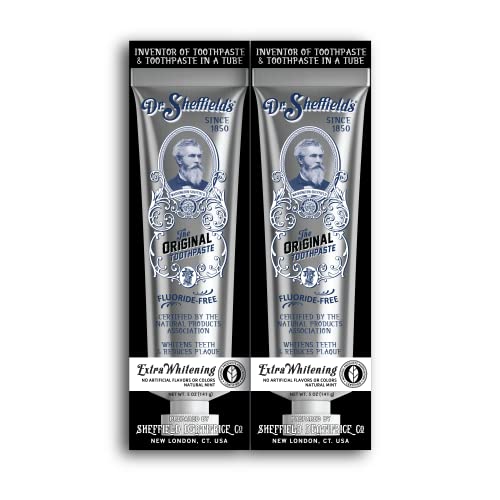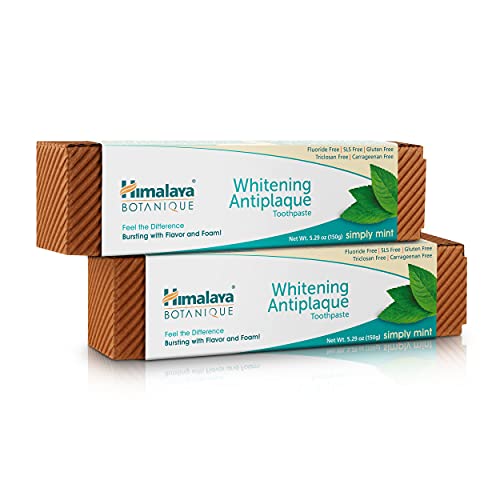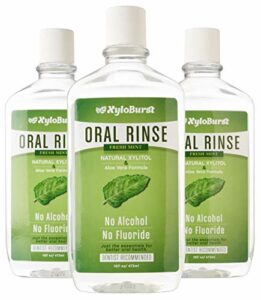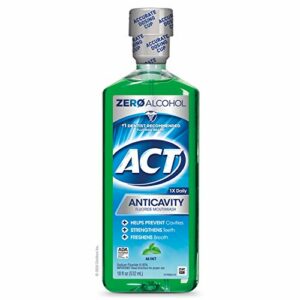Greetings, dear readers! Today, we invite you on a journey to explore the fascinating world of natural toothpaste and its environmental impact. We understand that making conscious choices for a healthier and more sustainable lifestyle can sometimes be overwhelming. That’s why we’re here, right beside you, ready to delve into the topic and shed light on the hidden effects that our toothpaste choices can have on our planet. In this post, we aim to navigate through the vast array of options and help you make informed decisions that align with both your oral health and the well-being of our beautiful Earth. So, let’s embark on this enlightening adventure together, shall we?
Discover the most popular natural toothpastes for a healthier smile
What is Natural Toothpaste?
When it comes to oral hygiene, choosing the right toothpaste is vital. With so many options available, it can be overwhelming to navigate through the aisles of toothpaste brands. One option that has gained popularity in recent years is natural toothpaste. In this blog section, we will explore what natural toothpaste is, its key ingredients, and why people are increasingly opting for it over conventional toothpaste options.
Understanding Natural Toothpaste
Natural toothpaste, as the name suggests, is a toothpaste made from natural ingredients derived from plants and minerals. Unlike conventional toothpaste, which often contains artificial additives, preservatives, and synthetic chemicals, natural toothpaste aims to provide a more holistic approach to oral care.
Key Ingredients in Natural Toothpaste
Natural toothpaste typically includes a combination of the following key ingredients:
- Baking Soda: Known for its ability to neutralize acids and remove stains, baking soda is a popular ingredient in natural toothpaste. It helps maintain a balanced pH level in the mouth and promotes a fresh breath.
- Essential Oils: Many natural toothpaste brands incorporate essential oils like peppermint, spearmint, or tea tree oil for their antiseptic properties and refreshing flavor. These oils not only provide a pleasant taste but also help combat bacteria and maintain oral health.
- Herbal Extracts: Natural toothpaste often contains herbal extracts such as chamomile, sage, or aloe vera. These extracts have soothing properties and can help reduce inflammation and irritation in the gums.
- Minerals: Natural toothpaste may contain minerals like calcium carbonate or silica, which act as mild abrasives to help remove plaque and surface stains from the teeth.
- Xylitol: Derived from natural sources such as fruits and vegetables, xylitol is a sweetener often used in natural toothpaste. It not only enhances the taste but also helps prevent tooth decay by inhibiting the growth of bacteria.
Benefits of Natural Toothpaste
There are several compelling reasons why people choose natural toothpaste over conventional options. Here are some of the key benefits:
- Avoidance of Harsh Chemicals: Natural toothpaste eliminates the use of synthetic chemicals, such as sodium lauryl sulfate (SLS) and artificial sweeteners, which some people may be sensitive to or prefer to avoid.
- Gentle on Teeth and Gums: Natural toothpaste tends to have a milder formulation, making it suitable for individuals with sensitive teeth or gums.
- Eco-Friendly: Many natural toothpaste brands prioritize sustainable and eco-friendly practices, using recyclable packaging and reducing the environmental impact.
- Cruelty-Free: Natural toothpaste is often not tested on animals, making it a compassionate choice for those concerned about animal welfare.
- Holistic Approach: Natural toothpaste promotes a holistic approach to oral care by utilizing plant-based ingredients that are known for their beneficial properties.
Environmental Impact of Conventional Toothpaste
In our quest for a healthy smile, we often overlook the toll that conventional toothpaste takes on the environment. From the extraction of natural resources to manufacturing processes, packaging waste, and disposal methods, the negative consequences associated with conventional toothpaste are significant. In this blog section, we will delve into these aspects, shedding light on the environmental impact of conventional toothpaste.
Extraction of Natural Resources
- Conventional toothpaste requires the extraction of various natural resources, such as limestone, silica, and petroleum.
- Mining and drilling for these resources can lead to habitat destruction, soil erosion, and water pollution.
- The extraction process contributes to the depletion of natural resources, disrupting ecosystems and exacerbating climate change.
Manufacturing Processes
- Conventional toothpaste manufacturing involves energy-intensive processes, including refining and chemical synthesis.
- The production of synthetic ingredients releases greenhouse gases and contributes to air pollution.
- Water consumption during manufacturing and cleaning processes further strains our already limited freshwater resources.
Packaging Waste
- Conventional toothpaste is typically packaged in plastic tubes, which are non-biodegradable and take hundreds of years to decompose.
- Plastic waste from toothpaste tubes often ends up in landfills, waterways, or incinerators, contributing to pollution and harming wildlife.
- The production and disposal of plastic packaging further exacerbate the global plastic waste crisis.
Disposal Methods
- Many people unknowingly dispose of conventional toothpaste tubes in regular household waste bins, where they end up in landfills.
- Toothpaste residue can contaminate soil and water when disposed of in this manner.
- Incineration of toothpaste tubes releases harmful emissions, contributing to air pollution and climate change.
Alternatives: A Sustainable Choice
- Natural toothpaste alternatives, such as those made from organic ingredients and packaged in eco-friendly materials, offer a more sustainable option.
- Ingredients like baking soda, essential oils, and plant-based extracts can effectively clean and protect teeth without the negative environmental impacts.
- Eco-friendly packaging options, such as recyclable or compostable tubes, help reduce waste and minimize the carbon footprint.
Sourcing Sustainable Ingredients
When it comes to natural toothpaste, one of the biggest environmental benefits lies in the way the ingredients are sourced. Unlike conventional toothpaste, which often contains synthetic chemicals and artificial additives, natural toothpaste is made from plant-based ingredients that are grown and harvested sustainably. Here are some key points to consider:
- Organic farming practices: Many natural toothpaste brands prioritize using organic ingredients, which means that the plants are grown without the use of harmful pesticides and synthetic fertilizers. This helps to minimize soil and water pollution and promote healthier ecosystems.
- Fair trade and ethical sourcing: Some natural toothpaste brands go a step further by ensuring that their ingredients are sourced from fair trade cooperatives or small-scale farmers. This supports local communities and helps to create a more equitable and sustainable supply chain.
- Biodegradable and renewable resources: Natural toothpaste often incorporates ingredients derived from renewable resources, such as bamboo or coconut oil. These resources can be replenished relatively quickly and have a lower ecological impact compared to petroleum-based ingredients found in conventional toothpaste.
Eco-Friendly Packaging
In addition to sustainable ingredient sourcing, natural toothpaste also tends to prioritize eco-friendly packaging materials. This is an important consideration, as conventional toothpaste tubes are typically made from non-recyclable plastic and contribute to the growing problem of plastic waste. Here’s how natural toothpaste packaging helps to reduce environmental impact:
- Recyclable or compostable tubes: Many natural toothpaste brands package their products in recyclable or compostable tubes. These alternatives are often made from materials such as aluminum or biodegradable plant-based plastics, which can be recycled or broken down naturally, reducing waste and conserving resources.
- Minimalist packaging design: Natural toothpaste brands often prioritize minimalist packaging, avoiding excessive use of plastic wrappers or inserts. This helps to reduce the overall amount of packaging waste generated and minimizes the ecological footprint of the product.
- Refillable options: Some natural toothpaste brands offer refillable options, where customers can purchase a refill pack instead of a new tube. This innovative approach reduces the amount of packaging waste generated over time and encourages a more sustainable consumption pattern.
Reduced Ecological Impact
When comparing natural toothpaste to conventional options, it becomes clear that the former has a reduced ecological impact. Here are a few key points to consider:
- Chemical pollution: Conventional toothpaste often contains synthetic chemicals that can be harmful to the environment when they enter waterways through wastewater. Natural toothpaste, on the other hand, relies on plant-derived ingredients that are generally safer for aquatic ecosystems.
- Microplastic pollution: Many conventional toothpaste brands add microplastics such as polyethylene beads for their abrasive properties. These microplastics can end up in the ocean, posing a threat to marine life. Natural toothpaste, which avoids the use of such additives, helps to minimize microplastic pollution.
- Water conservation: Some natural toothpaste brands prioritize water conservation by opting for formulas that require less rinsing. This not only saves water but also reduces the energy required to treat and supply water.
By choosing natural toothpaste, you can make a positive impact on the environment. From sustainable ingredient sourcing to eco-friendly packaging and reduced ecological impact, every small change counts. So why not start making a difference today by switching to natural toothpaste? Your teeth and the planet will thank you!
Factors to Consider and Recommendations
When it comes to choosing a natural toothpaste, there are several factors to consider to ensure that you are making an informed choice. These factors include certifications, ethical practices, and biodegradability. By taking these factors into account, you can select a toothpaste that not only promotes oral health but also aligns with your values and concerns for the environment.
Certifications
One of the first things to look for when choosing a natural toothpaste is the presence of relevant certifications. These certifications serve as indicators that the product meets certain standards and has undergone rigorous testing. Some certifications to consider include:
- USDA Certified Organic: This certification ensures that the toothpaste contains at least 95% organic ingredients and is free from synthetic additives and pesticides.
- Cruelty-Free: Look for toothpaste that is certified as cruelty-free by organizations such as Leaping Bunny or PETA. This ensures that no animal testing was involved in the production of the toothpaste.
- Vegan: If you follow a vegan lifestyle, look for toothpaste that is certified as vegan. This means it does not contain any animal-derived ingredients or by-products.
Ethical Practices
In addition to certifications, it is important to consider the ethical practices of the toothpaste brand. This includes factors such as:
- Sourcing: Look for toothpaste brands that source their ingredients sustainably and responsibly. This ensures that the production of the toothpaste does not contribute to deforestation, habitat destruction, or exploitation of communities.
- Fair Trade: Supporting toothpaste brands that are certified as fair trade means that the workers involved in the production process are paid fair wages and work under safe conditions.
Biodegradability
Another important factor to consider is the biodegradability of the toothpaste. Traditional toothpastes often contain synthetic ingredients that are harmful to the environment and do not break down easily. Opting for a natural toothpaste that is biodegradable ensures that it will not contribute to pollution or harm ecosystems. Look for toothpaste that is packaged in recyclable or compostable packaging to further reduce waste.
Recommendations
Based on these considerations, we have compiled a list of recommended natural toothpaste brands that meet high standards in terms of certifications, ethical practices, and biodegradability:
- Tom’s of Maine: Tom’s of Maine offers a wide range of natural toothpaste options that are certified organic, cruelty-free, and vegan. They also prioritize sustainable sourcing and use recyclable packaging.
- Dr. Bronner’s: Dr. Bronner’s toothpaste is USDA certified organic, cruelty-free, and vegan. Their products are also packaged in 100% recyclable materials.
- Davids Natural Toothpaste: Davids Natural Toothpaste is not only cruelty-free and vegan but also comes in a recyclable metal tube, reducing plastic waste. They also prioritize sustainability and use sustainable sourcing practices.
By choosing toothpaste from these brands, you can be confident that you are making a conscious and environmentally-friendly choice for your oral health. Remember to always read the labels and do your own research to ensure that the toothpaste aligns with your specific needs and preferences.
Note: This list is not exhaustive, and there are many other natural toothpaste brands available that meet similar standards.
Understanding the Consequences and Seeking Sustainable Solutions
In conclusion, we have explored the environmental impact of natural toothpaste and the various factors to consider when making a choice. We have discussed how natural toothpaste is made from plant-based ingredients and avoids harmful chemicals, making it a more eco-friendly option. Additionally, we have highlighted the importance of packaging materials and the impact they have on the environment.
Based on these factors, we recommend opting for natural toothpaste to minimize our ecological footprint. By choosing natural toothpaste, we can contribute to a cleaner environment by reducing the release of harmful chemicals into our water systems and limiting the amount of plastic waste generated from toothpaste tubes.
It is essential to understand that every small change we make can have a significant impact on our planet. By consciously choosing natural toothpaste and considering its environmental impact, we can play our part in creating a more sustainable future for all. Let us prioritize the health of our planet alongside our oral health, and together, we can make a difference.





















